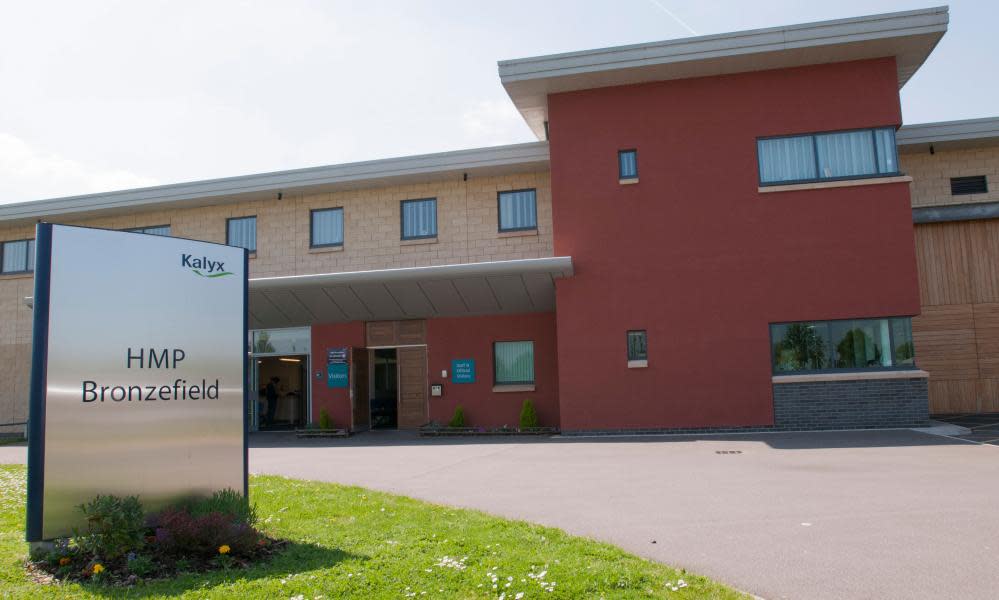Damning report published into death of baby born to teenager in prison cell

A catalogue of failures among prison and health professionals has been highlighted in an investigation report into the death of a teenager’s baby after she gave birth alone in her cell at the largest women’s prison in Europe.
The Prisons and Probation Ombudsman published the devastating report into the events in September 2019 at HMP Bronzefield in Ashford, Middlesex on Wednesday. The case was first revealed by the Guardian and the baby’s death triggered 11 separate inquiries.
The publication of the report has triggered multiple calls for an end to the imprisonment of pregnant women from the Royal College of Midwives, NGOs and academics in the field. The organisations Level Up, Women In Prison and Birth Companions have organised a petition.
Latest Ministry of Justice figures show that in the year ending March 2021 31 women gave birth during a prison sentence. While 28 gave birth in hospital and none were born in cells, three were delivered en route to hospital. Two previous babies were delivered in cells at Bronzefield and in December 2017 a full-term baby was stillborn in an ambulance on the way to hospital.
The report highlights the vulnerability of the 18-year-old who was in prison for the first time and was on remand for a robbery charge. She was said to have had “a troubled and traumatic childhood” and was “sad, angry and scared” after being told her baby would be taken away from her at birth.
There were several missed opportunities to intervene in her care.
According to the report the teenager, referred to as Ms A, “appeared to have been regarded as difficult and having a ‘bad attitude’ rather than as a vulnerable 18-year-old, frightened that her baby would be taken away”. Failings included:
There was confusion among different health professionals about her due date.
The day before her baby was born she told a prison nurse she would kill herself or someone else if the baby was taken away from her, but this information was not adequately shared.
On 26 September she was put on extended observation, meaning she should have been regularly checked but this did not happen. She rang the bell twice at 8.07pm and 8.32pm that day. A call was connected then immediately disconnected at 8.45pm. She did not press the bell again. Checks by prison officers at 9.27pm and 4.19am revealed “nothing untoward”.
It was left to two prisoners to alert staff to the fact that there was blood in her cell at 8.21am on 27 September.
A pathologist was unable to determine if the baby was born alive or stillborn.
Prisons and Probation ombudsman Sue McAllister said: “Ms A gave birth alone in her cell overnight without medical assistance. This should never have happened. Overall, the healthcare offered to Ms A in Bronzefield was not equivalent to that she could have expected in the community.”
Naomi Delap, the director of Birth Companions, a charity that specialises in the needs and experiences of pregnant women and mothers in prison, said: “This devastating report on the death of Baby A, and the harrowing accounts of Louise Powell who lost her own baby in HMP Styal just nine months later, add to the already considerable evidence that prisons are not safe for pregnant women and their babies, nor will they ever be.”
Vicky Robinson, director of HMP Bronzefield, said: “This was tragic and extremely sad. We are deeply sorry that this happened and our thoughts throughout have been with the family. In the two years which have passed, we have cooperated fully with the PPO investigation.”
Elaine Macdonald of Tuckers Solicitors, who represents Ms A, said: “The failings identified in this report are truly shocking. A vulnerable young woman giving birth alone in a prison cell should never have happened, and the number of significant concerns raised about her treatment while in custody need to be urgently and fully examined.”
The deputy prime minister and justice secretary, Dominic Raab, said: “These events are harrowing, unacceptable and should never happen to any woman or child. We have already implemented the recommendation in the Prisons and Probation Ombudsman’s report. We have put in place important improvements to the care received by women in custody, and across government we must make sure that expectant mothers in prison get the same support as those in the community.”

 Yahoo News
Yahoo News 
